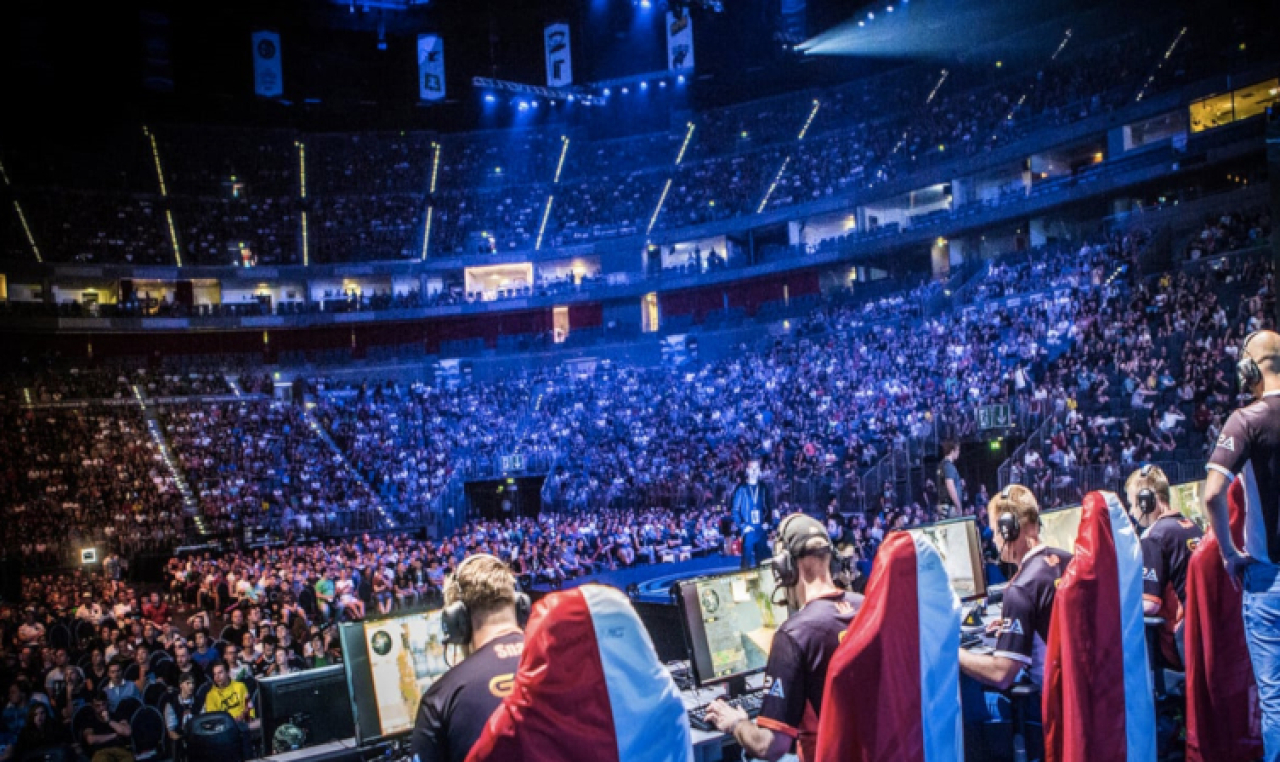Dedicated fan communities and professional leagues exist for games like League of Legends, Overwatch, and Counter-Strike 2, while newer titles like VALORANT. Esports events, such as The International (Dota 2) and the Fortnite World Cup, bring in big audiences and provide massive prize pools.
However, the COVID-19 epidemic has had a tremendous influence on the esports business. After the decline of live events and the rise of online competitions, esports gained popularity among both spectators and competitors. Since more individuals have been exposed to esports and the convenience of online tournaments, this tendency is likely to persist even when the epidemic dissipates.
Looking to the future, there are great aspirations for the expansion and popular acceptance of esports. Many anticipate that it will someday match conventional sports leagues in terms of popularity and revenue. There is even discussion of esports being added as an Olympic event in the future. An important part in esports' development will be played by technological advancements. Future technological developments, such as virtual reality, augmented reality, and others, may alter and deepen the immersive quality of esports for fans.
Sponsorship and media coverage will also play a crucial part in the future of esports. As it gets more popular, it is possible that we will see more collaborations with conventional sports clubs and leagues, as well as broadcast arrangements with big media sources. This will serve to further legitimize esports and bring it into the general awareness.
However, there are other obstacles affecting the esports sector. One of the major is the absence of uniform rules and standards. With so many distinct games and leagues, it may be difficult to provide a fair and equal playing field for all contestants. Additionally, the possibility for gaming addiction and detrimental health repercussions is an issue that must be addressed. It is crucial for gamers to set good habits and limitations when it comes to their gaming habits.
Cheating and match manipulation are additional concerns that have plagued the esports sector. Stricter enforcement and deterrents will be essential to maintain the integrity of esports tournaments. Finally, the problem of diversity and inclusion in esports must be addressed. While the esports community is diverse, there is still a dearth of representation among players and in leadership roles. It is crucial for the esports sector to be more inclusive and to give chances for underrepresented groups.
One of the leading esport FPS game is Counter-Strike series. The main feature in the counter-strike 2 is Trust Factor as a general idea of matching players on same level.
For those who are unfamiliar, what exactly is the Trust Factor?
Valve implemented csgo trust factor in 2017 to replace the Prime Matchmaking mechanism we also got same Trust Factor in CS2. It takes into account a number of variables to establish a player's trustworthiness, then pairs them with other players who share their trust level.
Valve claims their Trust Factor system is excellent at pairing people who will get along. This takes into account the player's history, the number of reports and bans they have gotten, their current skill level, and the amount of time they have spent actually playing the game. As opposed to trying to pair up honest players with fakes, the objective of the trust factor was to weed out the former group. However its not always perfect as sometimes system can backfire genuine players.
To what end does Trust Factor serve?
Valve has been secretive about the formulas used to determine Trust Factor. It is understood, however, that a number of variables are considered by the system.
Trust Factor takes into account a player's history, including their overall playing style, the amount of complaints lodged against them, and any suspensions they may have received. Negatively disruptive or troublemaking players have a lower Trust Factor.
The Trust Factor takes into account a player's skill level in addition to other factors. Metrics like their match performance and rankings demonstrate this. Trust Factors are often greater for more skilled and well-respected players.
The more time a player puts into Counter-Strike, the more data the Trust Factor system may gather about them. Those who have put in more time playing the game are rewarded with a higher Trust Factor. Not only time but also cs2 commend bot can be usefull in boosting your trust factor.
What makes Trust Factor so vital?
The Trust Factor plays an important role in the CS:GO community by bringing together players with comparable skill sets. This improves the overall gaming experience and reduces the likelihood of honest people being paired with the online gaming nightmare of cheats and trolls.
The fundamental concept for controlling the amount of toxic gamers is to group players together who both have low Trust Factors. Although not foolproof, the Trust Factor system does a decent job of keeping cheats and trolls out of the community. The system's drawback is that you'll enter a low trust factor, which is difficult to escape. When people lose the games, they often report the other team without giving any evidence. This is just how our minds are wired. Every time we lose, we blame the other side for cheating. In this manner, even if you're on the up-and-up, you may wind up with a low trust factor and get paired off with all the negative players. This is why further development of Trust Factor as a system is necessary. If your trustworthiness drops too low, the only way to go back to where you need to be is to utilize a service like imbaboost.com. Following claims from insane opponents that they will not bring you down for free, we can only hope that Valve will update the trust factor algorithm.












